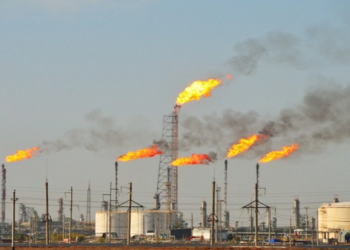The Organization of Petroleum Exporting Countries (OPEC) has said that Nigeria is still Africa’s top crude oil producer after it pumped 1.3 million barrels daily in February 2023 to surpass Angola and Algeria.
OPEC disclosed this in its latest monthly oil market report released today, March 14, and obtained by Nairametrics.
Note that the figure by OPEC corresponds with the rate earlier released by the Nigerian Upstream Petroleum Regulatory Commission (NUPRC).
More details: The report highlighted that in the period under review, total OPEC-13 crude oil production averaged 28.92 million barrels per day in February 2023, higher by 117 thousand barrels per day month-on-month.
Among OPEC producers, crude oil output increased mainly in Nigeria, Saudi Arabia and Congo, while production in Angola and Iraq declined during the period highlighted. However, West African crude differentials strengthened in February, specifically Angolan crude, on firm demand from Chinese buyers.
The report also noted that the expected demand for OPEC crude in 2023 was revised down by 0.2 million barrels per day to 29.3 million barrels per day. However, this is still about 0.8 million barrels per day higher than in 2022.
Global oil demand: According to OPEC, Overall, oil demand continues to be driven by the ongoing recovery in the travel and transportation sectors. Following estimated growth of 2.5 million barrels per day (mb/d) year-on-year in 2022, oil demand is forecast to grow by a healthy 2.3 mb/d in 2023 to an average of 101.9 mb/d.
Global oil market risks: OPEC expects that in addition to high global inflation levels and the consequence of rising interest rates, oil market risks may include continued geopolitical tensions in Eastern Europe and China’s ongoing domestic challenges stemming from its still fragile real estate sector. The effects of China’s reopening could lead to a strong rise in consumption and therefore keep global inflation elevated.
Nigeria’s economic growth trends: The OPEC report suggests that in 2023, Nigeria’s economy will see decelerating economic activity due to a rising trend in inflation, ongoing external and fiscal pressures, and deteriorating global macroeconomic conditions. The report also notes that Nigeria’s full-year 2022 GDP growth stood at 3.3% in 2022, down from 3.6% in 2021. Said growth was supported by the services sector and the broader non-oil sectors. Meanwhile, inflation stood at 18.8% year-on-year in 2022, mainly driven by localized food and fuel shortages.























